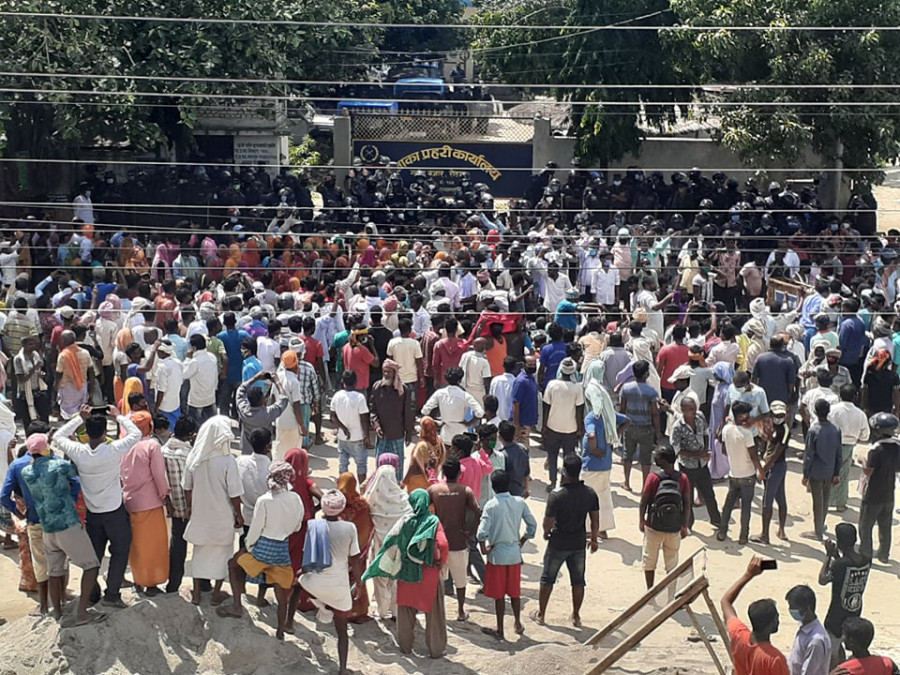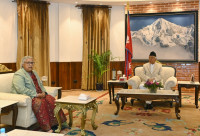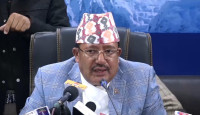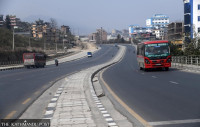National
Yet another Dalit death spotlights culture of torture in police custody
Family members, rights activists demand investigation into the death of Bijay Mahara detained over a murder case.
Binod Ghimire
On August 16, police arrested Bijay Mahara, 19, at his home in Garuda Municipality-8, Rautahat, along with 10 others over their alleged involvement in a murder that took place a day earlier.
Area Police Office Garuda alleged that Mahara assisted Shekh Alam, another local resident, in the murder of Niranjan Ram, also from the same area.
Despite repeated requests from family members and local rights activists, police didn’t allow family members to meet Mahara and other detainees. However, ten days later, on August 26 mid-night, the family was told Mahara died while receiving treatment for a kidney ailment at National Medical College, Birgunj.
“He didn’t have any health issues. Severe torture by police took his life,” Mahara’s uncle Rajesh Ram told the Post. “Police tried to force him to confess to his involvement in the crime,” said Ram alleging that police wanted to frame his nephew and other Dalit youths for the crime to save the real murderers.
Local rights activists alleged that the owners of a local nursery, where the murdered man worked, committed the crime with help from Alam, detained for the murder. “However, as the owners come from an affluent background, police is framing the poor youths for the murder,” said Ram Binay Paswan, secretary at Dalit Network, Province 2. Relatives and the rights activists said police used third-degree to force him to confess, but he didn’t give in.
In a video provided to the Post by Terai Human Rights Defenders (THRD) Alliance, a rights organisation, Mahara accuses police of kicking him, giving him electric shock, and beating with plastic pipes and wooden sticks. “Police tortured me every day demanding that I confess to my involvement in the murder I was never involved in,” he is heard saying from a hospital bed—his condition visibly fragile with injuries to different parts of the body.
Mahara’s relatives said police never informed them that he was admitted to the hospital, until he died. Mahara’s uncle Ram alleged that Deputy Superintendent of Police Gyan Kumar Mahato, the chief of Garuda police, conspired to frame him for the crime to save the owners of the nursery.
The father of Niranjan, who was found murdered, had lodged a complaint against Alam and nursery owners Raja Ram Sah, Lakhan Sah and Rajgir Sah. However, the Sah family hasn’t been arrested.
As family members feared that the local administration could pressurise the hospital in the district to prepare a false autopsy report, Mahara’s post-mortem was performed at Tribhuvan University Teaching Hospital, Maharajgunj on Friday. The report is yet to be provided to the family.
Mahara’s family, along with various human rights organisations have demanded a fair investigation into his death and due compensation to his kin. “We also ask for an assurance that such incidents won’t be repeated in the future,” reads a joint statement by the Advocacy Forum-Nepal and the THRD Alliance.
The National Human Rights Commission also said its serious attention has been drawn to the case and asked for justice to the victim. Bed Bhattarai, secretary at the commission, said the Province 2 office of the constitutional human rights watchdog has already started an investigation into the death.
Rautahat Chief District Officer Indra Dev Yadav said they are aware of the incident and are committed to investigating what happened. “We will investigate the matter and come out with the facts,” he told the Post.
Samata Foundation, an independent think-tank that studies caste-based discrimination and marginalisation, has also called for an impartial investigation into the incident.
Human rights activists say despite constitutional guarantees against torture of any form, a significant numbers of detainees face ill-treatment at the hands of the police. Cases of custodial deaths continue to be reported from various parts of the country.
On June 10, Shambu Sada, 23, was found dead in an apparent suicide in Sabaila Area Police in Dhanusha. The families contested the police claim saying it was a murder. Similarly, a youth from Siraha was found dead in Metropolitan Police Range, Lalitpur where he was held over an alleged rape case. Police claimed Durgesh Yadav, 24, killed himself and the case wasn’t investigated further.
In another incident, Ram Manohar Yadav was arrested from Gulariya in Bardiya on August 23, 2018, for displaying black flags in protest against then Deputy Prime Minister Upendra Yadav. Ten days later, Yadav’s family was told that he had died in police custody. While police maintained that Yadav had preexisting health conditions that led to his death, his family, friends and rights activists argued that mistreatment in prison was the real cause. Yadav’s wife Sunita has alleged that her husband was tortured to death. Despite her complaint no have been booked for the torture.
“Detainees continue to face torture at the hands of the police while there are no signs of decline in the custodial deaths,” Bikash Basnet, programme officer at the Advocacy Forum-Nepal, told the Post. A report by the Forum published in June shows around one-fifth of detainees faced torture or ill-treatment while in custody. The report based on a survey among around 1,300 detainees from the different parts of the country, said constitutional and legal provisions remain violated by those who have the responsibility to implement them.
Another report by the human rights organisation in June 2019 showed detainees from ethnic communities in the Tarai and those from the so-called lower caste are markedly more prone to torture and misbehaviour. The report showed 30.4 percent of such detainees from the plains reported abuse which was 8.2 percent higher than the average. Similarly, while 1.7 percent of Brahmins complained of the abuse, 30.5 percent of Dalits alleged the same.
Basnet said police officials involved in torture are seldom booked police officials themselves are assigned to investigate. “Police always prepare weak cases to save their officials,” he said. “There must be a separate entity to investigate torture cases.”




 10.91°C Kathmandu
10.91°C Kathmandu















